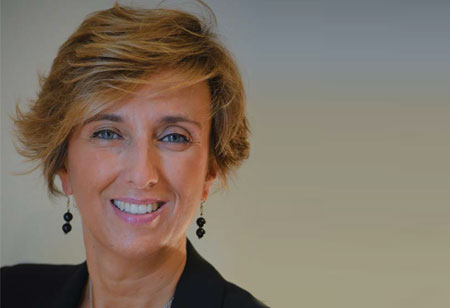As the chief financial officer at BIC, Sabrina Maggio is focused on developing talents and building motivated and enthusiastic teams through inclusive and situational leadership styles.
1. How has the CFOs role evolved over the years?
The disruptive Covid19 impact has significantly changed the role of the CFO and finance business partner requiring them to respond quickly to the challenges. In such an environment, the CFO's should provide alternative scenarios that support internal and external feedback to ensure the real-time flow of information in alignment. To add value and have a meaningful impact on decision-making with everything that is relevant, the CFO’s must have a thorough understanding of company’s business model and be able to communicate the information in a clear, concise, and meaningful manner. I see an evolution of the CFO as a robust leader for the people within the organization.
2. What are the new economic and ecological challenges plaguing businesses from transforming their operations for growth and sustainability?
I see an alignment between the economical and ecological challenges when it comes to their impact on the business and the footprint model. The challenges we see on the economic size is the rapidly rising inflation and supply chain disruption, as well as the hike in the demand for consumer package goods after the Covid, which suggests a revision of the footprint in favor of increased decentralization. To meet these challenges, companies need powerful data architecture, the necessary KPIs to support the financial system, and the ability to find a sustainable solution. The design to cost and the design for sustainability have drawn positive effects on economic and ecological KPIs. The strategies to protect product margins and ensure resource availability are aligned with the strategy to improve cost efficiency and to reduce environmental footprint. For instance, if we think of the crisis and the transportation in terms of availability and prices, and the gap between the demand and the offer on some material such as the metals or the non virgin plastic and the need of investment to support sustainable development, where we don't always see the financial return immediately, all these challenges call for the same kind of responses incorporated in innovation.
3. Have you worked on any specific project that empowered your organization and its overall financial posture?
The BIC group is recognized, liked, and trusted by customers all over the world, which benefited the company during the Covid crisis. In 2020 we launched horizon strategy to deliver a long-term sustainable business growth. In order to fully improve customer services while also optimizing the end-to-end supply chain, we implemented the team insight and innovation function, which supports innovation in the financial system. As a result, finance functions to add value within the environment. Finance worked closely with businesses and the group supply chain to design financial scenarios that supported decision-making and risk management. This was successful in 2020 during the Covid crisis, but in 2021 and 2022, the market volatility and inflation of raw materials and transportation created a new set of challenges. We partnered with procurement and worked together to anticipate the cost impact on the company and developed a cost reduction plan and pricing policies.
4. In your opinion, are there any defined implementation methodologies or processes for ensuring sustainable business growth?
In my opinion, sustainability cannot exist in an isolated department, but it must become an integral part of the company. BIC, as a brand, has been offering simple, reliable, and durable products for 75 years. Producing long-lasting products using minimum raw materials for product manufacturing and packaging has always been the company's business strategy.
" Sustainability cannot exist isolated within just a department but it must become an integral part of the company "
The BIC’s strategy entails the four R’s principle. The first R is to reduce the number of raw materials used in our product. The second R is to use the breath cycle for alternative materials. The third R is to offer real innovation, such as plant-based recycled, hybrid materials, and recyclable materials. We have also partnered with TerraCycle an innovative recycling company to collect 70 million pens and convert them into benches and give them to schools.
5. Is any future technology in financial services that you are optimistic about, anything that will impact the future?
Digitalization in finance and consumer packaged goods is key for effective business planning, especially in an environment where historical trends are less meaningful. Any technologies that can connect businesses with the market on a forward-looking base are essential to have a good prediction and maximize opportunities in the market.
6. What is your advice for other senior leaders and CXOs working in the finance sector?
Taking into consideration that consumers prefer to purchase from environmentally friendly firms, I would want to advice to my peers and other senior leaders to look at sustainability as a potential avenue for business growth. The 2021 GFK (Growth from Knowledge) and the counter study show that, in 2029, 50 percent of consumers will be sustainable shoppers, which presents a favorable opportunity for businesses that include sustainability into their business strategy.











